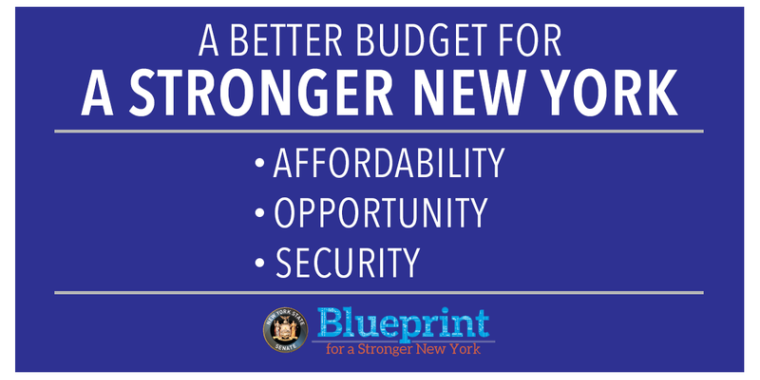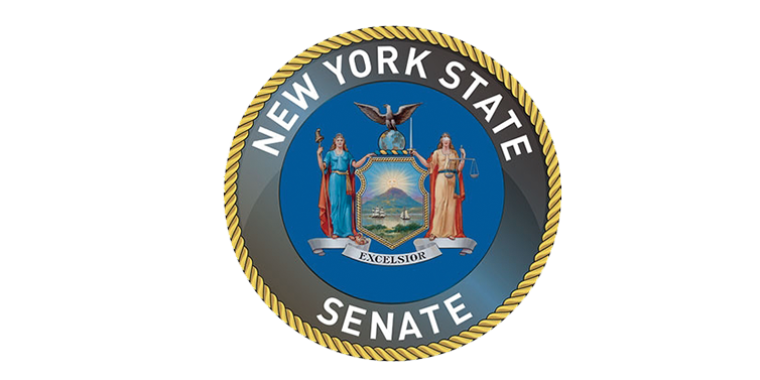
Senator Larkin Advocates For The Hudson Valley In Senate’s 2017-18 Budget
March 15, 2017

Senator Bill Larkin (R,C, I-39th District) cast his aye vote today on the Senate’s 2017-18 Budget Resolution. Senator Larkin advocated for many issues that could have a profound impact on the Hudson Valley concerning veteran’s services, clean water, property taxes and more.
“The Senate’s budget resolution is a responsible and fiscally disciplined spending plan that will cut taxes, reduce fees and improve economic opportunities for all New Yorkers,” said Senator Bill Larkin. “I am particularly proud of the Senate’s efforts to support veterans, combat Lyme disease and protect clean water.”
Due to Senator Larkin’s advocacy, the Senate budget includes $350,000 to assist Legal Services of the Hudson Valley in expanding their Veterans and Military Families Advocacy Project.
“The Veterans and Military Families Advocacy Project provides comprehensive free civil legal services to the Veterans living throughout the seven counties of the Hudson Valley,” said Legal Services of the Hudson Valley CEO Barbara Finkelstein. “As Senator Larkin knows the increased funding could assist us in advancing the dignity and self-sufficiency of Veterans in the Hudson Valley. We appreciate his ongoing support for the Veterans community.”
Senator Larkin’s efforts also helped include nearly $8 billion to ensure New Yorkers have access to clean and safe drinking water. The Senate’s budget establishes the Emerging Contaminant Monitoring Act and creates a new Drinking Water Quality Institute.
“Since the PFOS contamination was discovered in the City of Newburgh I have continuously worked with the appropriate State agencies, local officials and my colleagues in the Senate to find both short term and long term solutions,” said Senator Larkin. “The actions taken by the Senate today brings us one step closer to our goal of ensuring that all communities, including the City of Newburgh have clean water.”
Senator Larkin also worked hard to continue to reduce property taxes and reject fee increases proposed by Governor Cuomo. The Senate’s budget proposal advances several measures to protect the significant savings provided by the School Tax Relief (STAR) program and would help small businesses save on their property taxes. The measure includes:
· Reversing changes made last year to the STAR Personal Income Tax Credit Program from reimbursements back to an up-front exemption effective for the 2018–19 school year;
· Addressing the significant delays of STAR payments by the state to taxpayers that occurred this year by requiring the state to postmark all advance payment STAR checks by September 15th, requiring the state to pay interest if they are mailed late, and reimbursing taxpayers for penalties or interest due to late school tax bill payments; and
· Making permanent the state’s property tax cap – which has already saved taxpayers $15.5 billion over the last five years -- and establishing a property tax cap for New York City to enable those residents and businesses to get needed tax relief.
The Senate budget rejects a number of onerous tax-and-fee increases proposed by Governor Cuomo, including new DMV fees, new taxes on internet purchases and a new surcharge on pre-paid cell phones. In addition, to help avoid future tax increases, the Senate’s resolution imposes a statutory cap on state spending.
To help more seniors save money and choose to stay in New York during retirement, the Senate increases the private pension and retirement income exclusion from $20,000 to $40,000 for single taxpayers and to $80,000 for married taxpayers, over three years. This would be the first increase to the exempt amount of private pensions and retirement since 1981 and save retirees approximately $315 million.
Senator Larkin fought to include an additional $600,000 in funding to support research, education and prevention efforts to combat Lyme disease. The Senate Budget proposal also rejects the Governor’s free tuition proposal. The Senate instead improves upon the Governor’s higher education proposals by making more middle-class families eligible for more financial aid and giving students greater flexibility in school choice to promote success.
For a closer look at the Senate Budget Resolution please click here.



